 Navigation
Navigation
Introduction to Ethereum Blockchain: The Internet’s Government
Bitcoin has catchy slogans like digital gold and internet money, but what is Ethereum Blockchain? Sometimes it’s called the world computer. But what in the world is a “world computer”? Without having to take a course in computer science, here is a straightforward explanation of what Ethereum really is:
Ethereum blockchain is the internet’s government, and smart contracts are its laws.
To understand Ethereum’s profound implications, let’s examine the functioning of this new internet government.
Introduction to Ethereum Blockchain: Creating and Enacting Laws
Laws in ethereum blockchain work a little differently than laws in traditional governments. First, in ethereum laws can be created by anyone. That means you, your neighbor, and President Obama are all on equal ground.
These laws are traditionally called smart contracts. They are written in code. The code is just a language in which there is no room for interpretation unless explicitly authorized. So if you learn the language, congratulations! You are now a member of the legislative branch of the internet government.
Once a law is written, it must be enacted by the government’s executive branch: a network of computers running the ethereum software. You must pay the computers upfront for the cost of enforcement. However, it is extremely cheap. It costs about half a penny for a law to be executed and enforced. So if you’ve got half a penny to spare, congratulations! You’re now in charge of the executive branch.
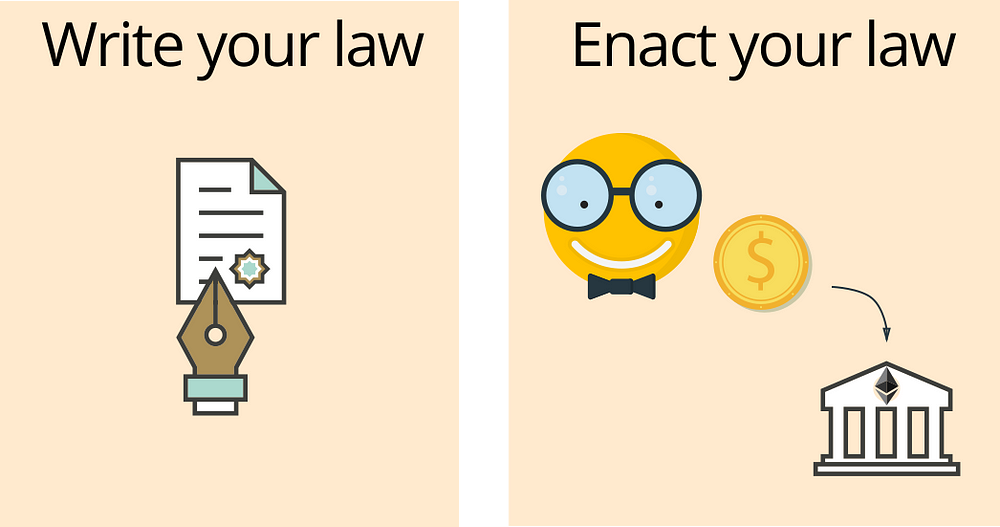
Following Laws
But wait! There’s a catch. Creating a law doesn’t mean everyone is going to follow it. All ethereum laws are opt-in. For your law to be adopted, you’ll need to convince fellow citizens that following your law is in their interest.
You must also decide which laws you choose to follow. Good laws will provide distinct advantages to those who follow them. They allow for cooperative action and greater trust within the group.
One example of cooperative action enabled by laws could be a service like Uber. The drivers will follow laws that protect them from bad passengers, and passengers will follow laws that protect them from bad drivers. To illustrate the concept of these smart contract laws, two Uber laws could be:
- If you (a passenger) assault your driver, and they report it, you are kicked out of the service.
- If you are reported but you file a counterclaim within one day, you will be appointed a random arbiter to resolve the dispute.
These laws provide the protections required to organize groups with minimal overhead.
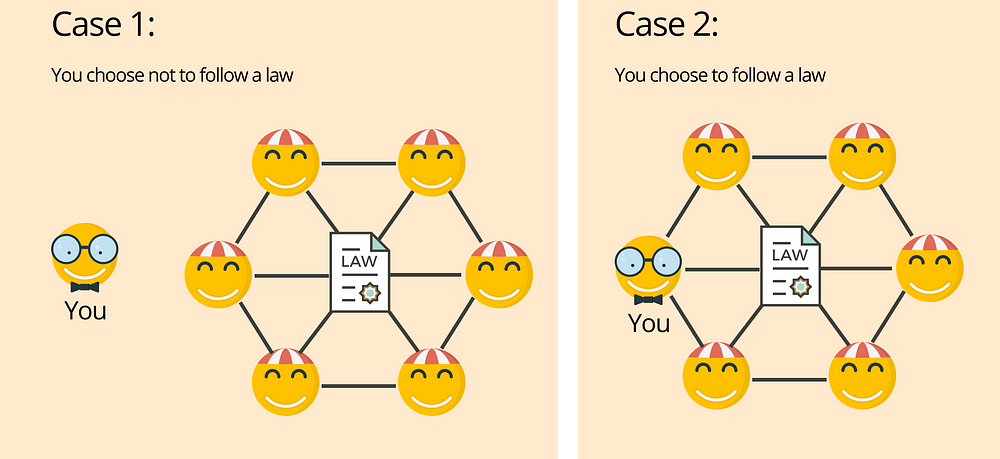
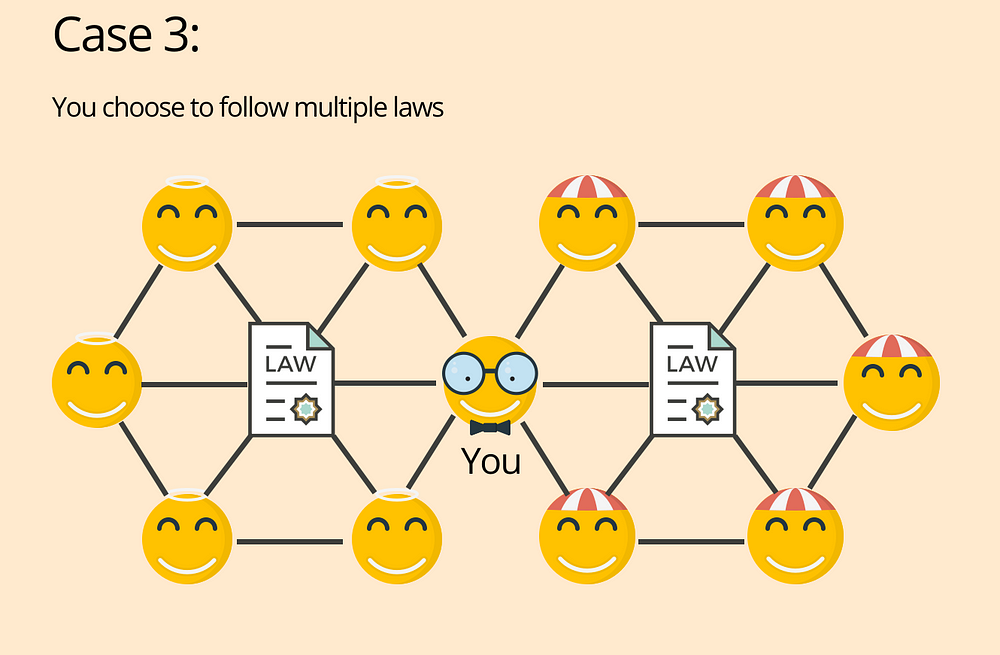
These diagrams get much more complicated when one law depends on another. For instance, to be an Uber driver you also have to follow the insurance laws. While this might be hard to represent with cute smileys, this is how the internet government will be able to handle the complexities of modern governance.
Breaking Laws
The internet government has another interesting property: it is impossible to break laws. All laws are executed exactly as they are defined. For instance, in our Uber example, having an assault filed against a passenger will always cause them to be kicked out of the service. It doesn’t matter if they are a new user or the president and founder of Uber. This is great for battling corruption, but sometimes corruption is not the problem.
Many laws are poorly designed or unfair. These laws are also executed exactly as defined. This may seem terrible, but it’s essential for weeding them out. It is easy to identify a bad law if following it is actively harming you. I would be broke in a week if I had to pay a fine every time I jaywalked.
While it is impossible to break laws, you can explicitly choose not to follow them. Remember, all laws are opt-in. This provides a simple mechanism for weeding out bad laws: they simply cease to be followed.
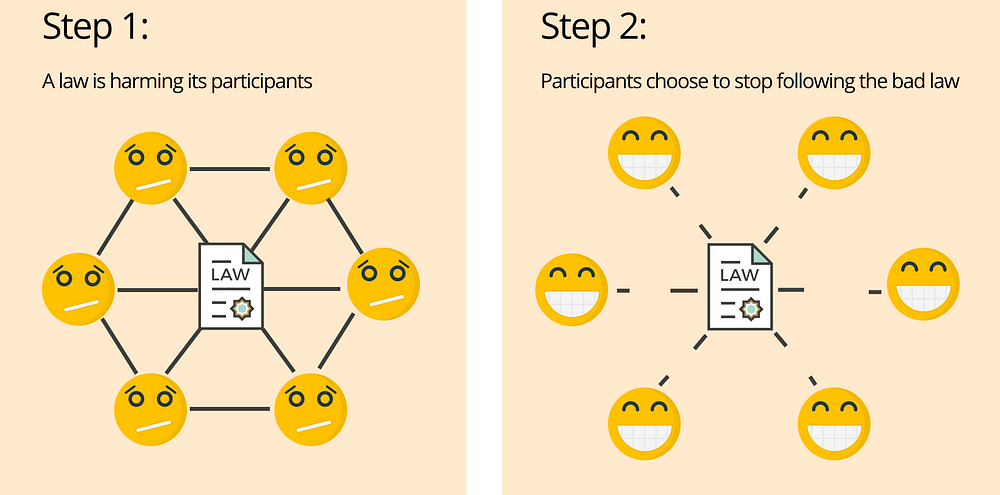
Governing with the Scientific Method
Governance is one of the most ancient conundrums of humankind, and it is by no means solved. Inequality, injustice, and corruption have been defining features of the modern era. Today humanity faces some of its most difficult challenges. We will need effective governance if we want to stand a chance.
The internet government is probably our best bet. With low-cost opt-in laws that cannot be broken, for the first time, we can easily apply the scientific method, trial, and error, to governance. Laws being opt-in means they are under every citizen’s scrutiny. Laws being unbreakable lets us accurately measure their effectiveness. Law creation being available to everyone means new laws can rapidly replace old ineffective ones. And then we repeat. We will be able to turn governance into a science and discover laws that are effective and fair for all.
ethereum is not just the internet’s government, it’s yours.
This article was written by Karl Floeresch, Ethereum developer at Consensys and originally published at karl.tech on December 8, 2016.

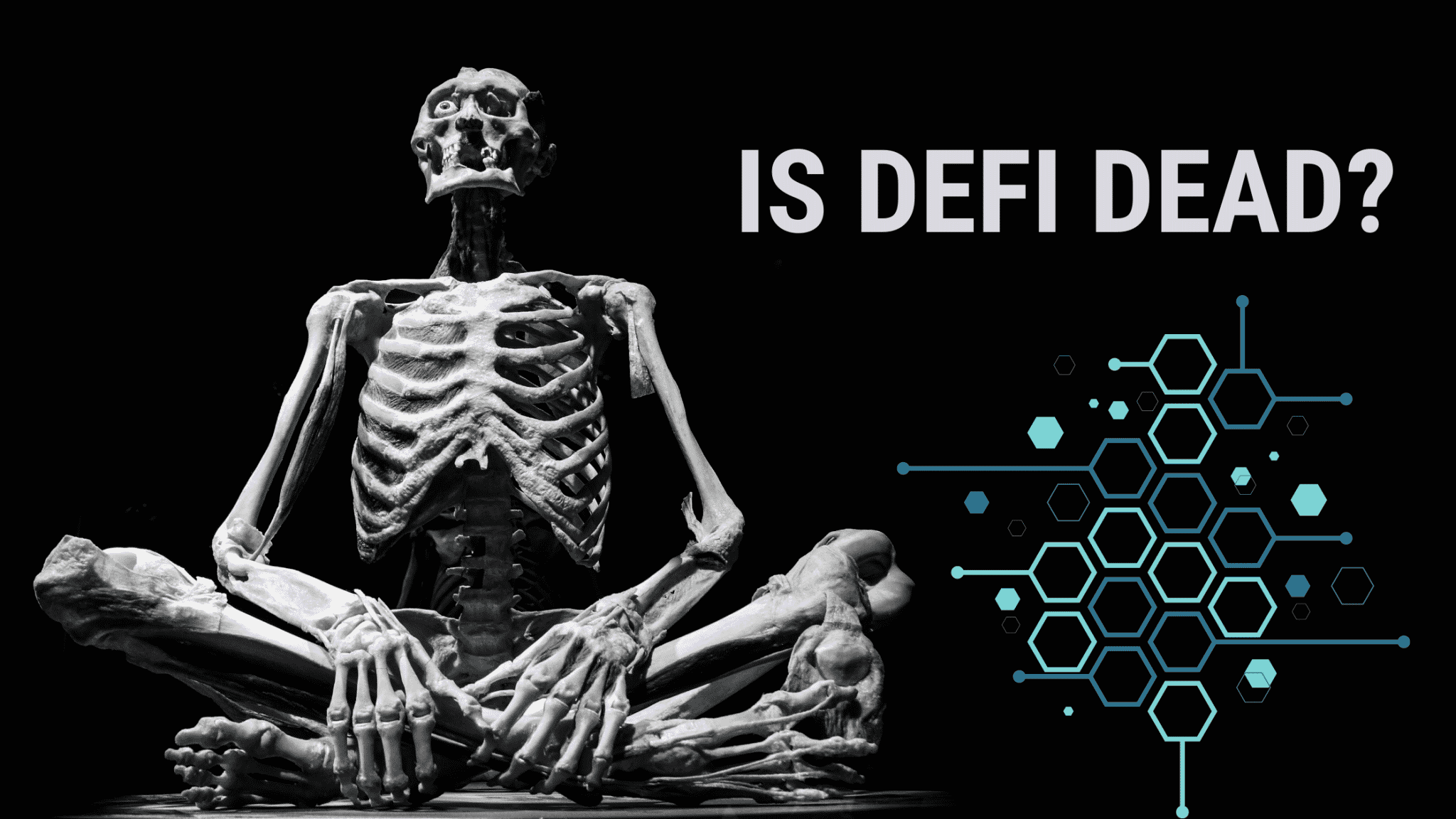

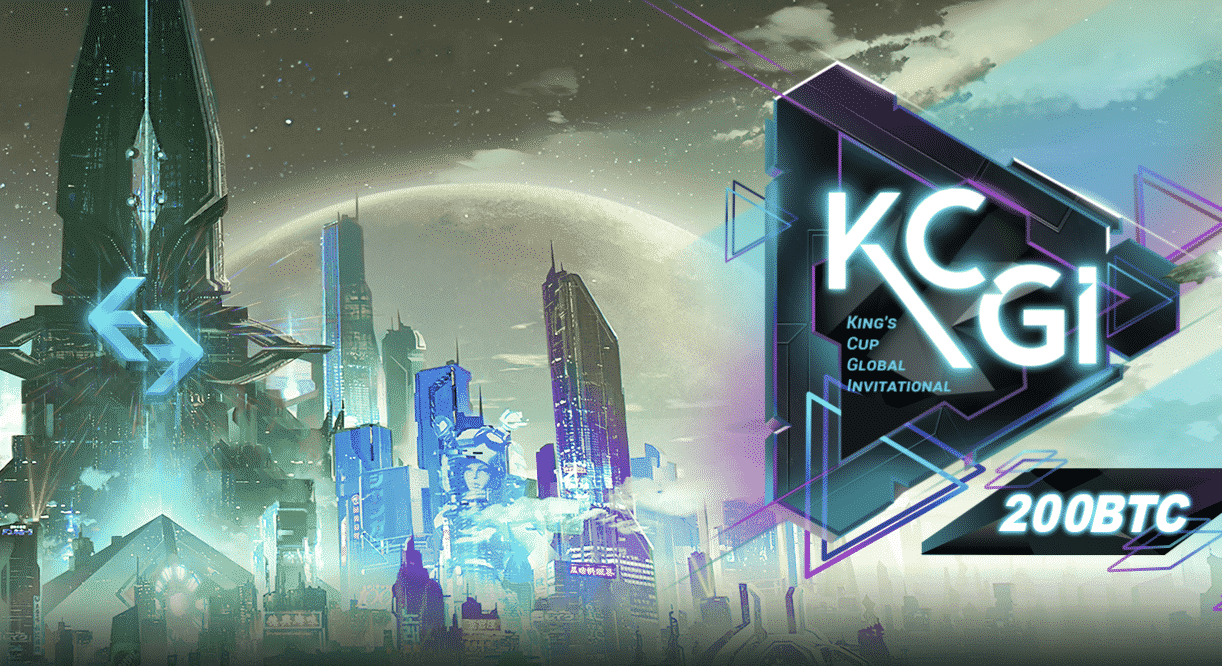
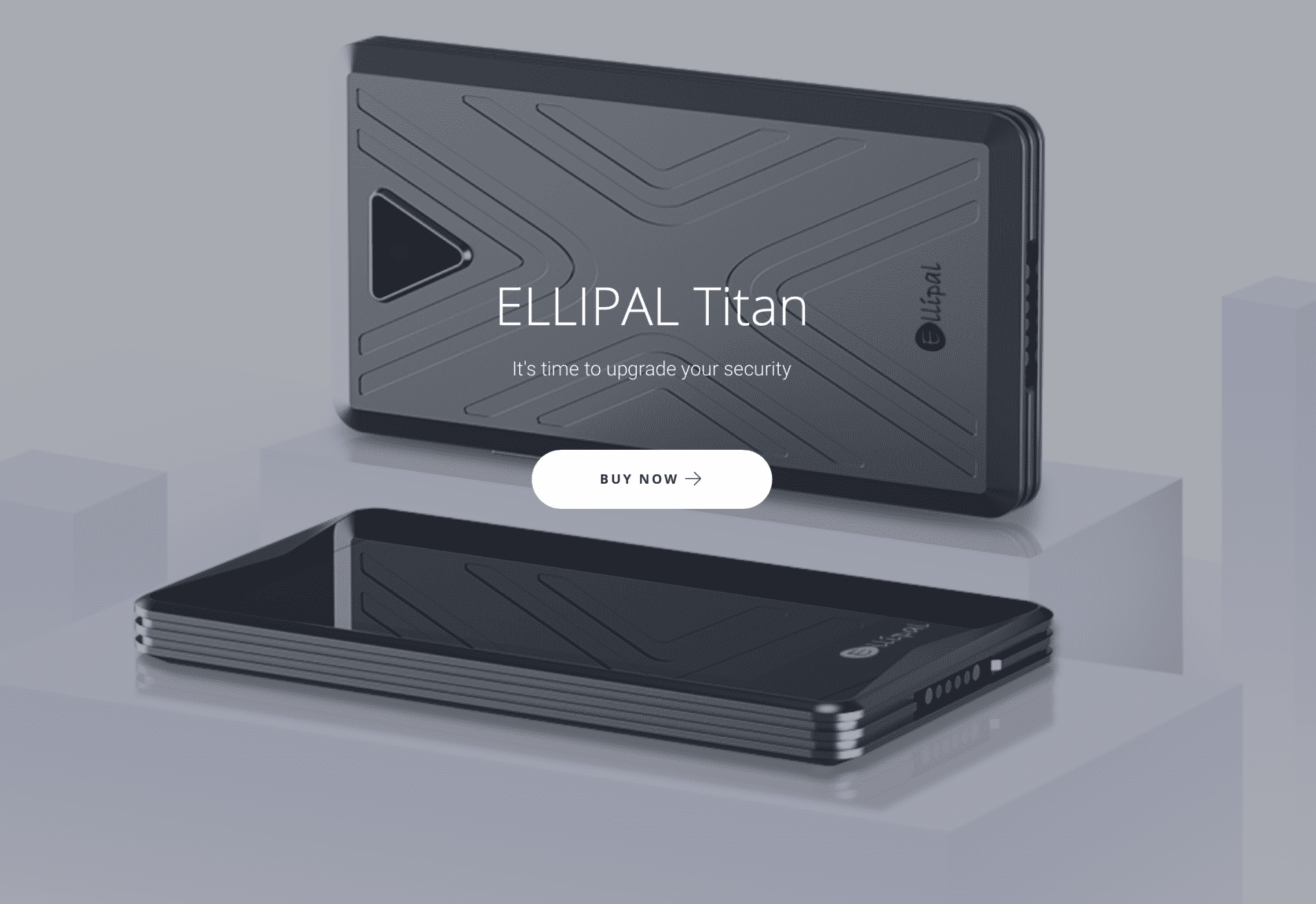
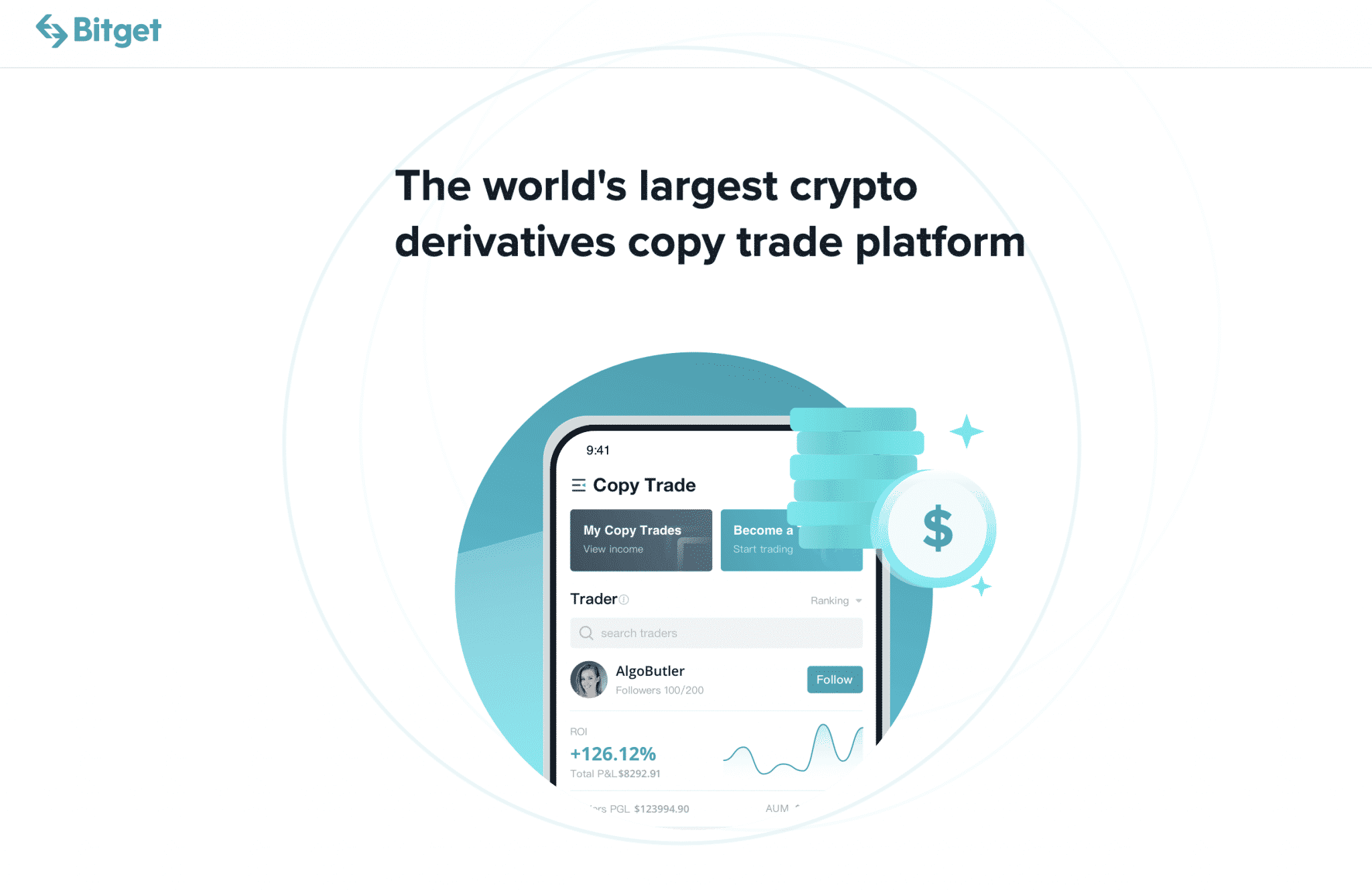
Kari, nice article.
I was wondering blockchain as a platform for political elections but you raised something beyond.
What about politicians that are supposed to produce national, province, village laws (constitution, regulations, etc.)?
Is it possible to merge blockchain approaches in the way people elect lawmakers and the way they aprove/accept produced laws? Or in a ‘blockchained world’ there will be no need of usual politician lawmakers as ordinary people (including any law specialists) could be able to produce voluntarily laws that can be self-organizedly accepted or not.
Nice ideas and hints, thanks.
Kari, nice article.
I was wondering blockchain as a platform for political elections but you raised something beyond.
What about politicians that are supposed to produce national, province, village laws (constitution, regulations, etc.)?
Is it possible to merge blockchain approaches in the way people elect lawmakers and the way they aprove/accept produced laws? Or in a ‘blockchained world’ there will be no need of usual politician lawmakers as ordinary people (including any law specialists) could be able to produce voluntarily laws that can be self-organizedly accepted or not.
Nice ideas and hints, thanks.
Kari, nice article.
I was wondering blockchain as a platform for political elections but you raised something beyond.
What about politicians that are supposed to produce national, province, village laws (constitution, regulations, etc.)?
Is it possible to merge blockchain approaches in the way people elect lawmakers and the way they aprove/accept produced laws? Or in a ‘blockchained world’ there will be no need of usual politician lawmakers as ordinary people (including any law specialists) could be able to produce voluntarily laws that can be self-organizedly accepted or not.
Nice ideas and hints, thanks.
If you focus on the language describing interactions (mostly contractual at this point), the solution relegates platform to a negotiable item.
If you focus on the language describing interactions (mostly contractual at this point), the solution relegates platform to a negotiable item.
If you focus on the language describing interactions (mostly contractual at this point), the solution relegates platform to a negotiable item.
Fantastic article and wonderful conversation. Thanks for all.
Fantastic article and wonderful conversation. Thanks for all.
Fantastic article and wonderful conversation. Thanks for all.
Great explanation!
Karl Floersch – one big challenge is connecting the smart contracts with the real world. While a smart contract can’t be broken (assuming its properly written), it will only work correctly if it has obtained correct information from the real world. A number of oracles are being developed to solve this. What are your thoughts around that?
Dmitry Buterin Thank you!
This is a difficult problem. I think you can break the problem down into two halves: 1) oracle reputation, and 2) data volume and quality.
The first problem, oracle reputation, is assisted by services like oraclize.it which can get information into the blockchain in a trust minimized way. However, you still have to trust the data source. Acquiring that trust is an age old problem. Traditionally organizations become trusted by treating customers well, which can still work in a blockchain setting. Building tools that enable transparency & provable tamper-resistance (like oraclize.it, or even Golem) will help, but trust will still need to be earned.
Data quality and volume is another challenge. We won’t be able to store all information related to real world events on the blockchain. Instead we will have to store condensed interpretations, which requires the process of translation. These translations naturally vary in quality. They can be biased, incomplete, or even incorrect. It will require advances in measuring devices, ‘reputation systems’, and maybe blockchain storage to get us closer to the truth in this respect. Blockchains could prove useful here by providing unique transparency and joint collaboration opportunities.
From a metaphysical perspective, I see the blockchain as a shared human consciousness and oracles and their reputations as “sharded†consciousness. There will always be tension between the parts and the whole, but it’s just a matter of time until the frictions are minimized.
Thanks man, very insightful!
Great explanation!
Karl Floersch – one big challenge is connecting the smart contracts with the real world. While a smart contract can’t be broken (assuming its properly written), it will only work correctly if it has obtained correct information from the real world. A number of oracles are being developed to solve this. What are your thoughts around that?
Dmitry Buterin Thank you!
This is a difficult problem. I think you can break the problem down into two halves: 1) oracle reputation, and 2) data volume and quality.
The first problem, oracle reputation, is assisted by services like oraclize.it which can get information into the blockchain in a trust minimized way. However, you still have to trust the data source. Acquiring that trust is an age old problem. Traditionally organizations become trusted by treating customers well, which can still work in a blockchain setting. Building tools that enable transparency & provable tamper-resistance (like oraclize.it, or even Golem) will help, but trust will still need to be earned.
Data quality and volume is another challenge. We won’t be able to store all information related to real world events on the blockchain. Instead we will have to store condensed interpretations, which requires the process of translation. These translations naturally vary in quality. They can be biased, incomplete, or even incorrect. It will require advances in measuring devices, ‘reputation systems’, and maybe blockchain storage to get us closer to the truth in this respect. Blockchains could prove useful here by providing unique transparency and joint collaboration opportunities.
From a metaphysical perspective, I see the blockchain as a shared human consciousness and oracles and their reputations as “sharded” consciousness. There will always be tension between the parts and the whole, but it’s just a matter of time until the frictions are minimized.
Thanks man, very insightful!
Great explanation!
Karl Floersch – one big challenge is connecting the smart contracts with the real world. While a smart contract can’t be broken (assuming its properly written), it will only work correctly if it has obtained correct information from the real world. A number of oracles are being developed to solve this. What are your thoughts around that?
Dmitry Buterin Thank you!
This is a difficult problem. I think you can break the problem down into two halves: 1) oracle reputation, and 2) data volume and quality.
The first problem, oracle reputation, is assisted by services like oraclize.it which can get information into the blockchain in a trust minimized way. However, you still have to trust the data source. Acquiring that trust is an age old problem. Traditionally organizations become trusted by treating customers well, which can still work in a blockchain setting. Building tools that enable transparency & provable tamper-resistance (like oraclize.it, or even Golem) will help, but trust will still need to be earned.
Data quality and volume is another challenge. We won’t be able to store all information related to real world events on the blockchain. Instead we will have to store condensed interpretations, which requires the process of translation. These translations naturally vary in quality. They can be biased, incomplete, or even incorrect. It will require advances in measuring devices, ‘reputation systems’, and maybe blockchain storage to get us closer to the truth in this respect. Blockchains could prove useful here by providing unique transparency and joint collaboration opportunities.
From a metaphysical perspective, I see the blockchain as a shared human consciousness and oracles and their reputations as “sharded” consciousness. There will always be tension between the parts and the whole, but it’s just a matter of time until the frictions are minimized.
Thanks man, very insightful!